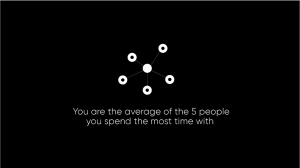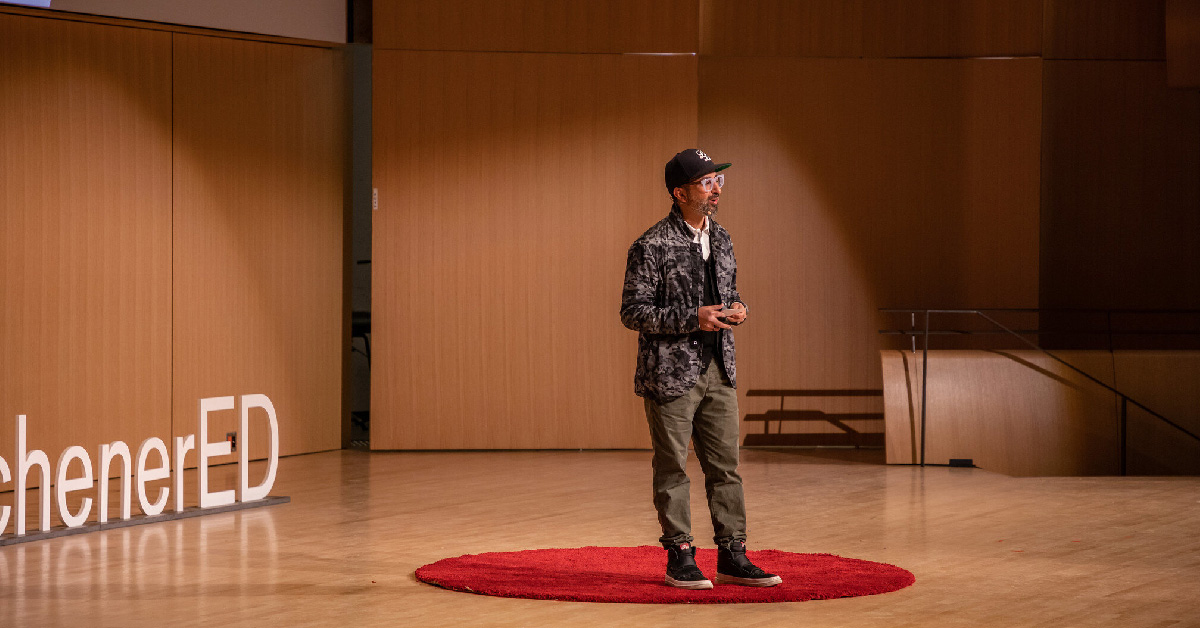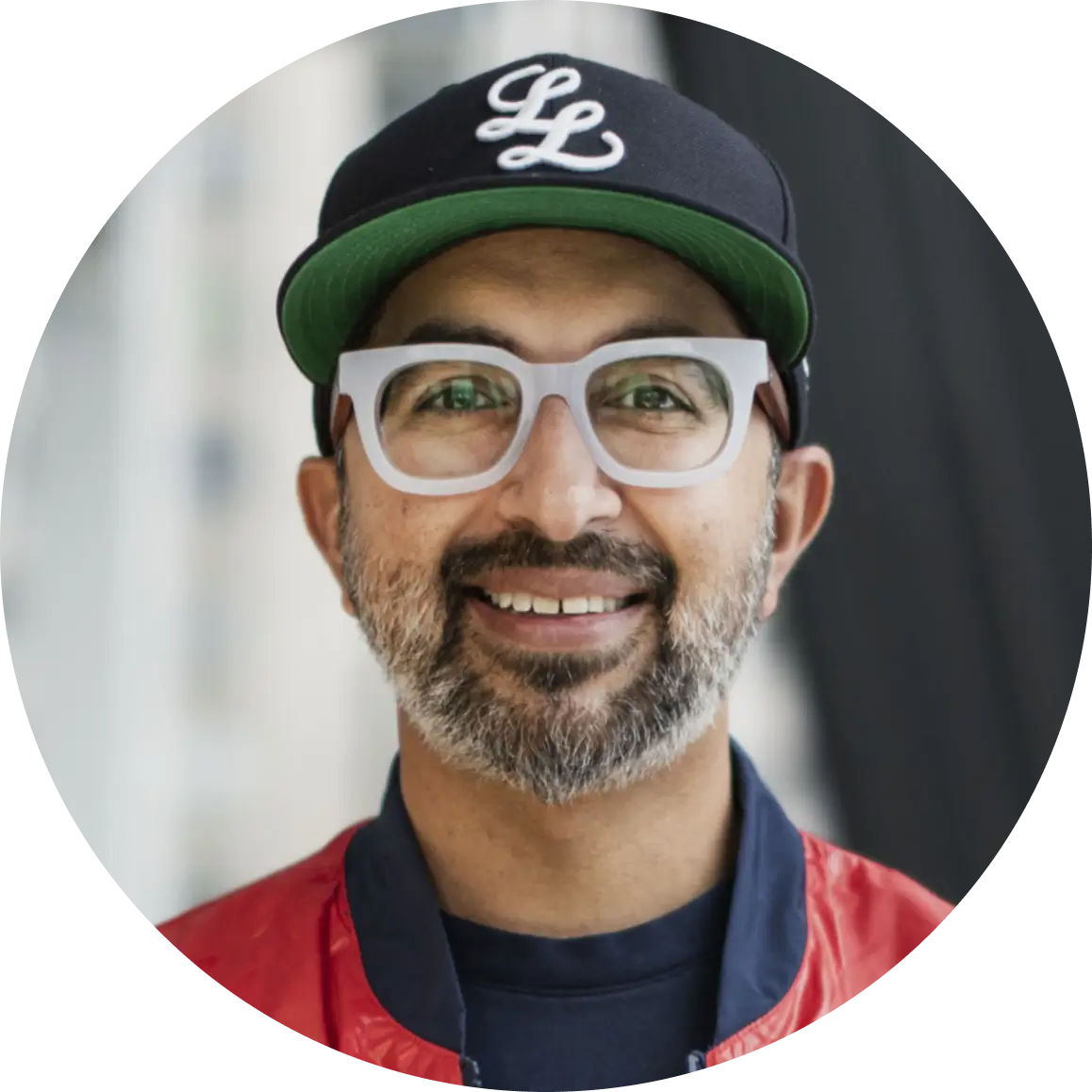5&Vine Founder Rahul Raj Speaks at TEDx
In February, 5&Vine’s Founder and CMO Rahul Raj participated in an independently organized TED event, TEDxKitchenerED. The afternoon featured inspiring thinkers and performances that explored ideas worth spreading about the future of education.
Rahul’s big idea elaborated on the genesis of the mission that motivates all of us at 5&Vine and informs the way we approach everything from brand building to user experience: challenger thinking. You can watch a recording of the talk here, or revisit the key points below.
Where his love for Challenger Brands started
Much of Rahul’s story began at Wilfrid Laurier University, when he was placed in the football dorm and given a meal plan that was way too large. So he went to the university and asked if they could right-size his plan and refund the difference. Nice try, they said, but feel free to eat as much as you want.
“Great! Freshman 50? A lifetime supply of Tic Tacs or just a bunch of wasted money sitting on my meal plan? It didn’t seem like I had any good options,” Rahul said.
“But it didn’t feel right to just let that money go to waste. After sitting on it for a while, it occurred to me: What if I used all that extra money to feed those in need?”
When Rahul shared the idea with friends, he found they wanted to donate too. Before long he was going door to door in the dorm collecting donations. By the end of day five, he’d collected $6,000 and set the foundation for Meal Exchange.

Today, the organization coordinates the student movement to transform food on campuses and ensure it’s healthy, sustainable, just, equitable, and accessible to everyone. So far, it’s facilitated the donation of over $5M to support community and campus food banks.
“It has been a 25 year journey, with many, many challenges. But it stemmed from those fundamental questions I asked about my over-sized meal plan: Why does it have to be this way? How could this be better?
When I think back to that moment – it would have been so easy to just go with the flow. To accept conventional “no’s” and move on. But by asking ‘why’, and following the answer, something unexpected and incredible was created.
This has been the animating force of my career and journey. I call it “Challenger Thinking”: asking ‘why’, with the belief that we can challenge convention and make the world better.”
A Revolution at Walmart
In 2010 Rahul joined Walmart.com as their Head of Sustainability. He was hired to promote sustainable business practices through efforts like making packaging more green, but he had this feeling there was more he could do.
Instead of working on the packaging, what about the product itself?
“I knew that to create an enduring solution it needed to be connected to the core of Walmart’s DNA. So I became a student of the organization. I devoured every book I could on Walmart’s history and impact – positive and negative – and even had the opportunity to speak with the Walton family.
I learned that their roots were in helping lower income, rural Americans access the same quality and pricing of goods as urban Americans. And they did; largely by selling second tier brands. But consumers didn’t want Emerson cell phones. They wanted iPhones!
And so I asked: Why does it have to be this way? How could this be better?”
At the time, Walmart had a liberal 30 day return policy, which translated into millions of returns that cost the company billions of dollars. So he asked whether Walmart could refurbish those items to give them a second life?
“I set up a small refurbishing centre in one of Walmart’s return centers. We triaged the highest value returns, refurbished them, and sold them on Walmart.com.
Walmart’s leadership was worried it would erode in-store sales. But it didn’t – it worked. And so we rolled the program out across the entire United States.
In addition to refurbishing returns, we also encouraged customers to bring back their used electronics into our stores for market value, in the form of cash, which gave them more money to spend on things they needed – like groceries.”
To date, this program has generated billions in new sales for Walmart and diverted millions of pounds of electronics from landfill. For Rahul, it was a great lesson that even in the largest organizations, new paths can be forged by embracing Challenger Thinking, asking why, and solving for better.
You are the average of the five people you spend the most time with
By 2016, Rahul had spent three years working tirelessly to put a technology startup on the map. And while he achieved that, the day to day experience eroded his happiness. He was working for a mission-driven company and its toxic culture had become the norm.
“That spring our family was confronted with an overwhelming amount of tragedy: a murder, a suicide, death by heart attack, and my father was given months to live. It was devastating and it forced me to ask a bunch of questions I should have been asking all along.
Why isn’t this job making me happy even if it’s supposed to? Why doesn’t this culture feel right even when it’s the norm? Why is this the best way to spend my time?”
As he sat with his grief, he came across a quote from Jim Rohn that said:
“You are the average of the 5 people you spend the most time with.”

“It resonated so deeply that the fog started to lift. I didn’t know how much time I had, but I knew I didn’t want to waste it. And I needed to find or create an environment to engage with my five – those that would help raise my average with their intellect, humanity and drive.
Life forced that lesson on me. And the value of Challenger Thinking became clearer. Either be a challenger today or be challenged tomorrow.”
Using discomfort as a breeding ground
In closing, Rahul offers this:
“The next time you find yourself feeling uncomfortable with how things are, don’t ignore it. Take the time to feel uncomfortable, to be bothered – by that excess money on a meal plan, a narrow mandate from your employer, or that toxic culture – and let that feeling grow.
Take the time to feel uncomfortable because that discomfort you feel is the breeding ground for Challenger Thinking.
Ask yourself: Why does it have to be this way? How could this be better?
And then do something about it! Act, speak up. And build up your confidence to move from a series of small actions to planning for bigger ones.
Accept that you will fail. Because it will happen, but it’s the only way you’ll make progress. Embracing challenger thinking means embracing discomfort. But you use that discomfort to propel you forward.
Let that feeling become the force that guides you to ask hard questions and change something in the world for the better and start thinking and acting like a challenger.”
You can watch all of the TED talks videos from TEDxKitchener here.



